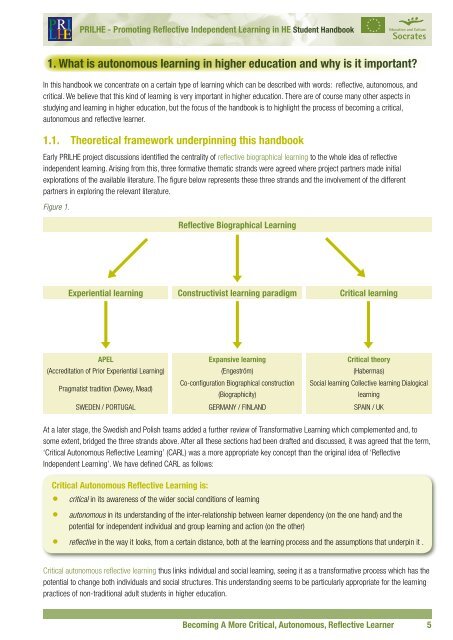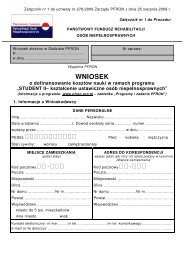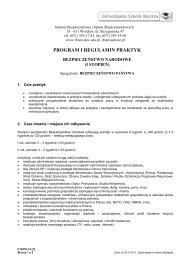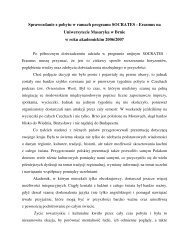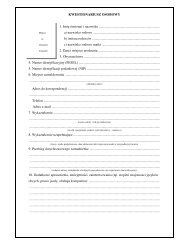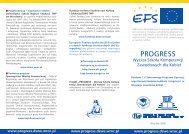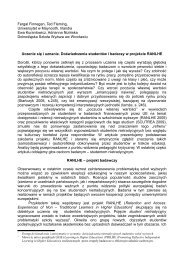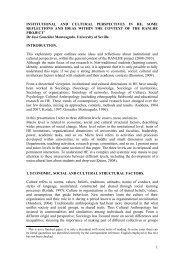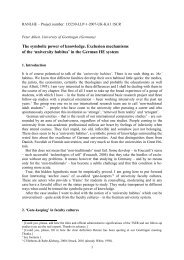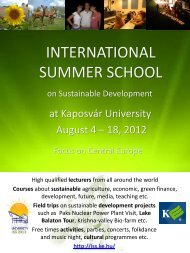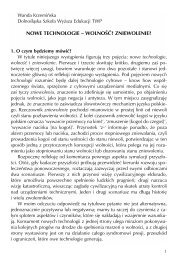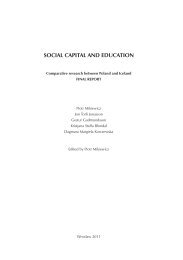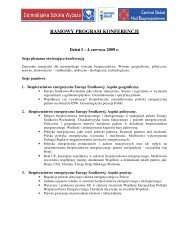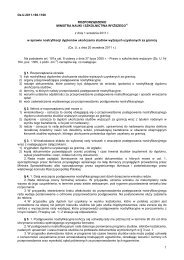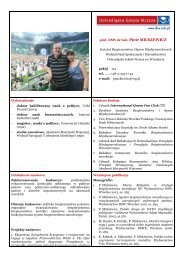Becoming A More Critical, Autonomous, Reflective Learner
Becoming A More Critical, Autonomous, Reflective Learner
Becoming A More Critical, Autonomous, Reflective Learner
Create successful ePaper yourself
Turn your PDF publications into a flip-book with our unique Google optimized e-Paper software.
PRILHE - Promoting <strong>Reflective</strong> Independent Learning in HE Student Handbook1. What is autonomous learning in higher education and why is it important?In this handbook we concentrate on a certain type of learning which can be described with words: reflective, autonomous, andcritical. We believe that this kind of learning is very important in higher education. There are of course many other aspects instudying and learning in higher education, but the focus of the handbook is to highlight the process of becoming a critical,autonomous and reflective learner.1.1. Theoretical framework underpinning this handbookEarly PRILHE project discussions identified the centrality of reflective biographical learning to the whole idea of reflectiveindependent learning. Arising from this, three formative thematic strands were agreed where project partners made initialexplorations of the available literature. The figure below represents these three strands and the involvement of the differentpartners in exploring the relevant literature.Figure 1.<strong>Reflective</strong> Biographical LearningExperiential learning Constructivist learning paradigm <strong>Critical</strong> learningAPEL(Accreditation of Prior Experiential Learning)Expansive learning(Engeström)<strong>Critical</strong> theory(Habermas)Pragmatist tradition (Dewey, Mead)Co-configuration Biographical construction Social learning Collective learning Dialogical(Biographicity)learningSWEDEN / PORTUGAL GERMANY / FINLAND SPAIN / UKAt a later stage, the Swedish and Polish teams added a further review of Transformative Learning which complemented and, tosome extent, bridged the three strands above. After all these sections had been drafted and discussed, it was agreed that the term,‘<strong>Critical</strong> <strong>Autonomous</strong> <strong>Reflective</strong> Learning’ (CARL) was a more appropriate key concept than the original idea of ‘<strong>Reflective</strong>Independent Learning’. We have defined CARL as follows:<strong>Critical</strong> <strong>Autonomous</strong> <strong>Reflective</strong> Learning is:••critical in its awareness of the wider social conditions of learningautonomous in its understanding of the inter-relationship between learner dependency (on the one hand) and thepotential for independent individual and group learning and action (on the other)• reflective in the way it looks, from a certain distance, both at the learning process and the assumptions that underpin it .<strong>Critical</strong> autonomous reflective learning thus links individual and social learning, seeing it as a transformative process which has thepotential to change both individuals and social structures. This understanding seems to be particularly appropriate for the learningpractices of non-traditional adult students in higher education.<strong>Becoming</strong> A <strong>More</strong> <strong>Critical</strong>, <strong>Autonomous</strong>, <strong>Reflective</strong> <strong>Learner</strong>


